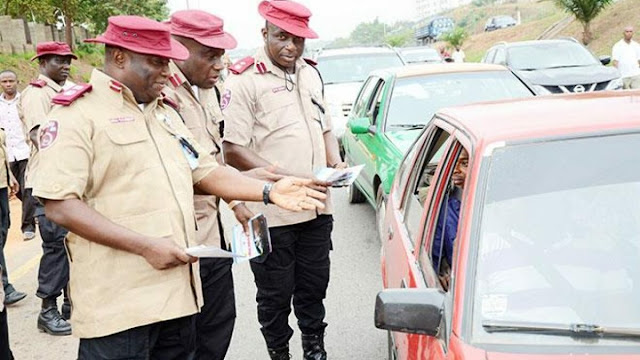The Federal Road Safety Corps (FRSC) has commenced special operations targeting vehicles bearing unauthorised number plates across the country, just as the Joint Tax Board (JTB) has announced a significant upward review of fees for obtaining and renewing vehicle number plates and driver’s licences. This development, which comes into effect on Sunday, 8th June 2025, is expected to impact motorists nationwide.
New pricing, as approved by the JTB—Nigeria’s apex coordinating body for tax and revenue authorities—includes a structured cost increment for various categories of number plates and driver's licences. This adjustment, the Board explained, reflects the integration of improved security features and an uptick in production costs associated with these essential vehicular documents.
Motorists applying for a driver’s licence will now pay N15,000 for the three-year validity option, while the five-year licence will cost N21,000. Motorcycle and tricycle drivers will pay N7,000 for a three-year licence, and N11,000 for a five-year version.
Vehicle number plates have also seen a price overhaul across multiple categories. The new standard private and commercial number plates are both fixed at N30,000 each. Articulated vehicles will attract a cost of N90,000, and dealer plates will now cost N100,000. Out-of-series number plates will be issued for N150,000, while those seeking fancy vehicle number plates will pay a premium fee of N400,000.
Government vehicles are not exempt from the new tariff. The standard government number plate has been priced at N80,000, whereas the fancy version will now cost N120,000. For motorcycles, the cost of a standard plate is now N12,000, and the fancy version goes for N50,000. Government motorcycles follow a similar price structure: N20,000 for standard and N50,000 for the fancy option.
While making the announcement through an advertorial featured in a national daily, JTB emphasized the importance of public awareness and urged all relevant agencies, particularly State Motor Vehicle Licensing Authorities and internal revenue services, to align with the revised structure. The Board further stressed that the adjustments apply uniformly across all states and the Federal Capital Territory.
To avoid being shortchanged, the public has been strongly advised to stay informed and avoid dealing with middlemen or touts. JTB made it clear that payments should be made only through authorised platforms, and that no individual or agency is permitted to impose charges beyond the approved fees. Applications and renewals can be processed via the National Vehicle Identification System (NVIS) portal at nvis.frsc.gov.ng, or through any Vehicle Licensing Authority across the nation.
FRSC operatives have already intensified efforts to enforce vehicle compliance, particularly against those using fake or unauthorised plates. This is part of a broader campaign to sanitize the vehicle registration system and tighten security on Nigerian roads. Officials have been deployed to various parts of the country for targeted operations, with motorists being stopped and scrutinised for compliance.
FRSC and the JTB believe the newly introduced pricing regime will not only enhance the integrity of vehicular documentation but also help tackle issues related to forgery and impersonation. The enhanced security features being rolled out aim to make forgery significantly more difficult, thereby contributing to national security and road safety objectives.
For further details, the public is encouraged to visit the FRSC website at www.frsc.gov.ng or consult any local Motor Licensing Authority.













![Content Creator Angelica Kelechi Speaks Out on Alleged Sexual Assault at Khloe Abiri’s Spa [VIDEO]](https://blogger.googleusercontent.com/img/b/R29vZ2xl/AVvXsEgQStip4cn2DAOvQ2hNFU30OAFWoxfQIDOnStd0uVgwwxKrFAQYYvtFni6QV04OGP8dyKk5TCAhXM5es9linl1ClhjPzaazz2tTt0LmJ5lFVe5202o2McF9QROT1v2hEyNTdY-M1KRuLTY6OqqysKNfcsY5bCtwCIP8wEQ4AXcfQfTaXWWZiixqf82NDH5a/w72-h72-p-k-no-nu/abiri-khloe123.jpg)






0 Comments
Hey there! We love hearing from you. Feel free to share your thoughts, ask questions, or add to the conversation. Just keep it respectful, relevant, and free from spam. Let’s keep this space welcoming for everyone. Thanks for being part of the discussion! 😊